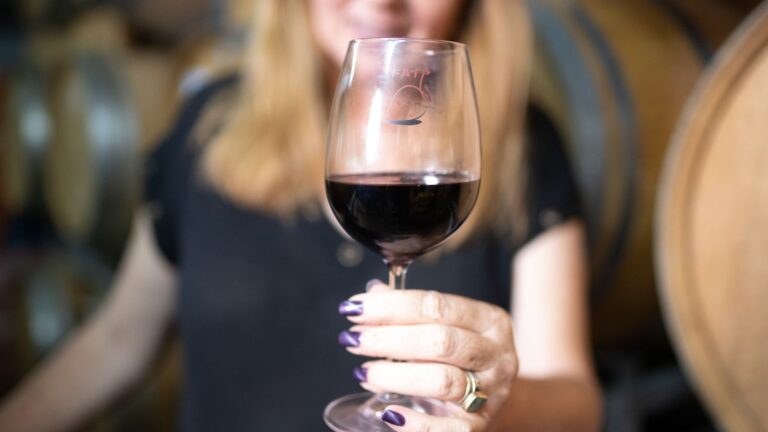In the middle of Moshav Sde Moshe in southern Israel stands a small house that looks like all the others around it. Passersby may not be aware that the house is the headquarters of award-winning olive oil brand Ptora.
Ido Tamir is the current owner of this family business. He took it over from his father, who took over from his own dad, an immigrant to pre-state Israel from Germany right before World War II.
“My grandfather was among the first Jews in the country to start cultivating olives in the country,” says Tamir, who initially had no interest in the business.
He spent years in the high tech sector, specializing in marketing. “I grew up with olive oil. I needed to get away in order to come back.”
And when he came back to help the business, he came back with a bang.
Establishing a brand
Until that time, Ptora’s olive oil was sold brandless to restaurants around the country.
Ido Tamir, with years of marketing experience under his belt, realized that when it comes to business, the line between mediocrity and greatness lies in the presentation.
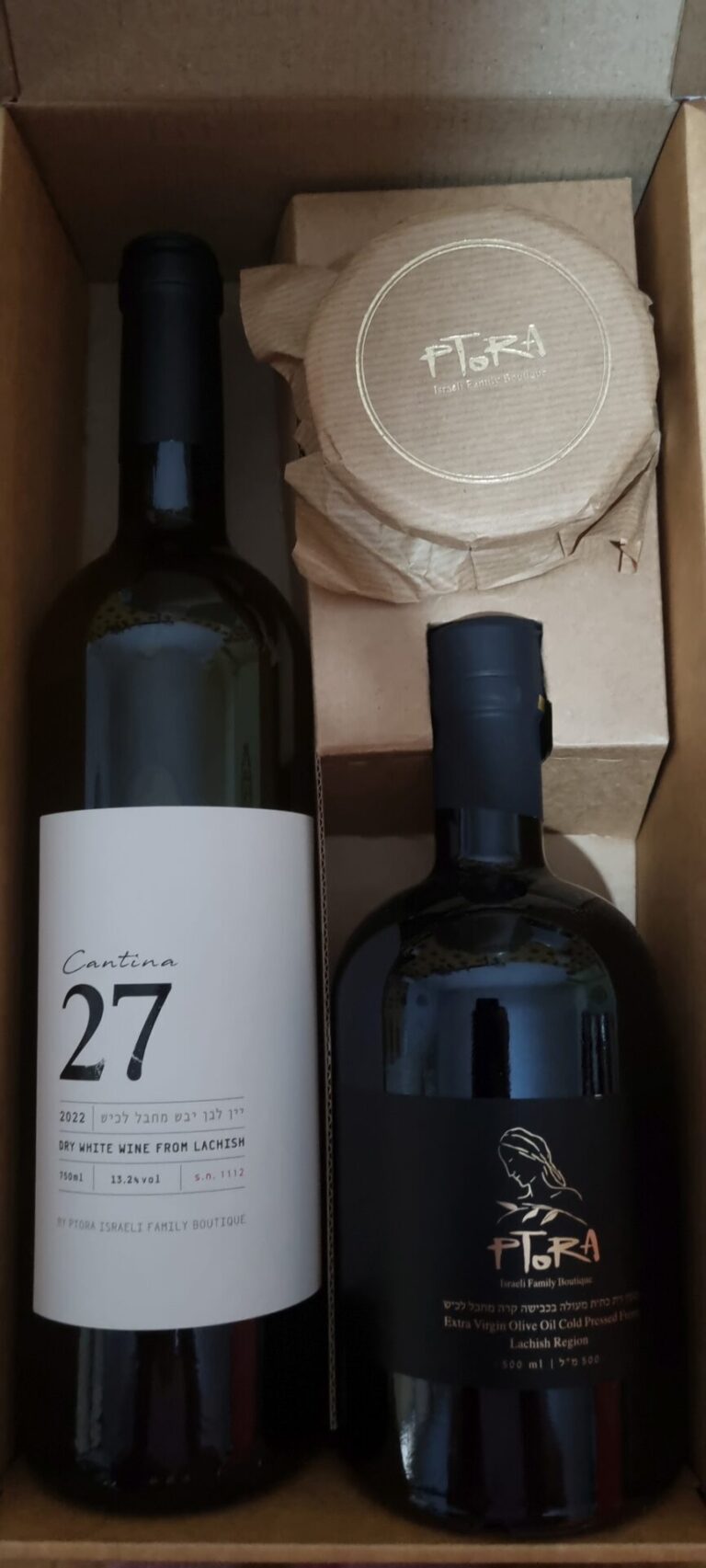
“My job was to make the customer be aware of us as olive producers. Because in the agriculture business at that time, you would grow a product but no one knows who you are. I wanted to establish a brand.”
The first task was picking a marketable name. “At the time, there were construction works nearby on Highway 6, and they discovered an ancient winery in what used to be an ancient Jewish city called Ptora. It is right underneath our olive fields.”
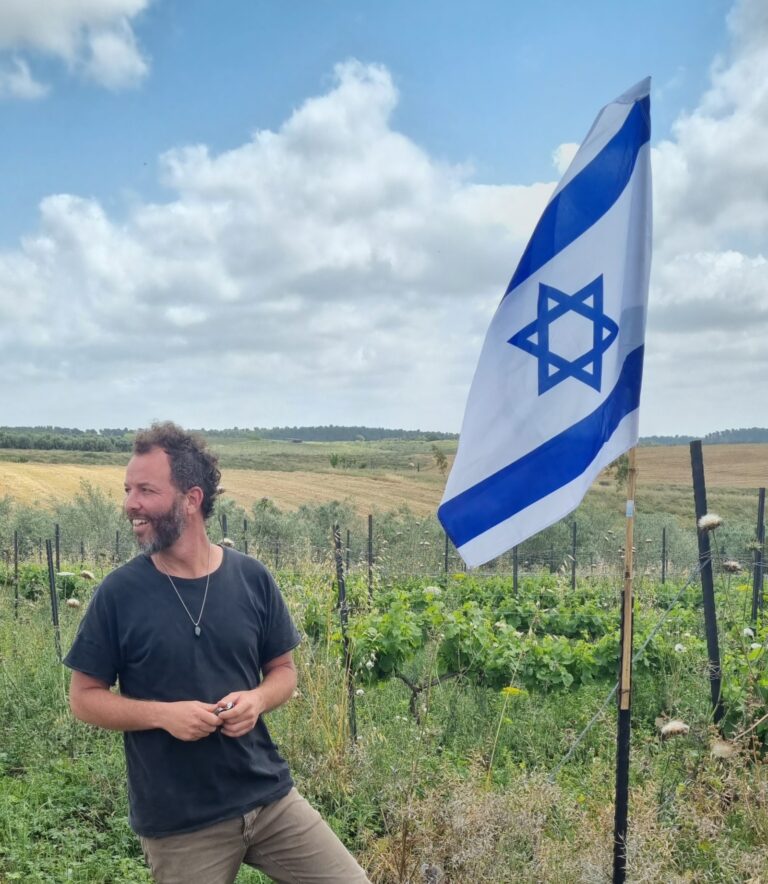
Tamir was forced to uproot many of the trees to allow for archeological digs to continue, but he gained a great name for his brand in the process.
“In 2010-2011, we started seeing an influx of customers. We were very innovative in the market. We started selling oil in the kind of packaging the market hadn’t seen before. The idea was to sell high-quality products in ‘lifestyle-type’ packaging.”
In 2015, Tamir’s father, who until that point was still managing the business, suffered “a serious health event.” This prompted Tamir to quit his day job and run Ptora full time.
Reeducating the market
Ptora’s excellence in presentation was confirmed earlier this year when its premium-quality Midnight Picual won first prize at Japan Olive Oil Prize (JOOP) for best-designed bottle.
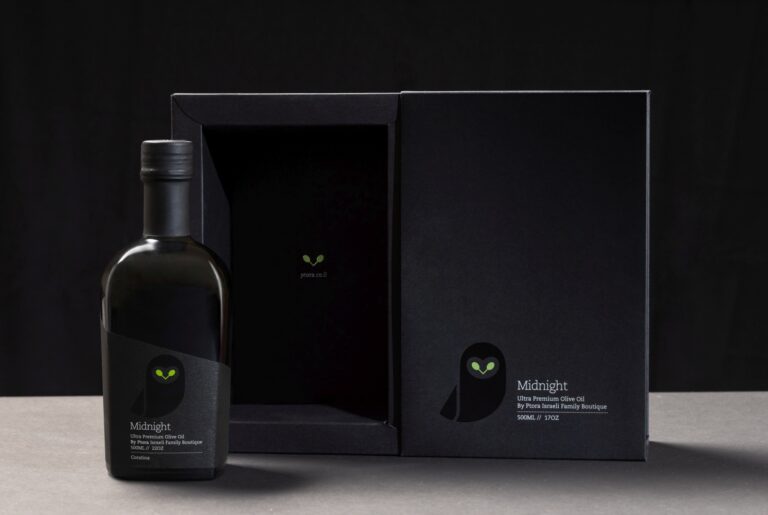
“Midnight is produced via a process that’s done entirely in the dark, which allows for the best extraction of chlorophyll from the fruit that preserves the aroma. This manufacturing process is very expensive,” Tamir tells ISRAEL21c.
The award was one of eight Ptora has won in the past three years alone. Tamir says he is most proud of grabbing gold at the 2021 New York International Olive Oil Competition.
“There is an Israeli [olive oil] scene developing, which is showing itself overseas along with brands from Italy and Spain. The local customers are finally starting to appreciate us. Maybe it’s pretentious to say, but we are reeducating the market.”
Tamir has also seen growing interest from customers in East Asia and the United States, which he says don’t excel at producing their own olive oil.
Premium quality
Tamir, a certified olive oil taster, heads a panel of Israel’s most high-profile tasters, making him a top authority when it comes to quality control.
The 42-year-old entrepreneur says that most people cannot differentiate between good and bad quality olive oil. He says most of the oil sold in the Israeli supermarkets, even those by domestic brands, is imported and the quality leaves much to be desired.
“There are four quality grades: extra virgin, virgin, ordinary, and lampante.” The latter designated as fuel and banned for human consumption.
“All the olive oil you see on the Israeli market today is branded as extra virgin, and most of the time it’s not true.”
He says the product is often mixed with lower-quality olive oil, including lampante, and in rare cases with vegetable oil. And it’s not only a problem in Israel.
“The US has the biggest percentage of olive oil fakes in the world,” he declares.
Tamir has been teaching local restaurateurs and “culinary people” how to smell and taste the olive oil to determine its quality. “That’s my specialty,” he says.
Ptora oil is considered premium, with an above-average price, starting at 47 shekels ($13) for a liter.
“We also have products that are ultra-premium,” he says, referring to Midnight Picual, which is priced at 165 shekels ($45) for half a liter. Tamir says that the same quality oil in Italy or Spain would cost nearly twice as much.
Environmental concerns, bureaucracy
Not all is rosy in the olive oil business, however, even for an award-winning brand.
Tamir says one of the main concerns for the future of the business is the changing climate and gradual, consistent warming. He predicts that some olive types will not survive or be profitable enough.
“In the past four years the harvest has been intermittent — one year would be very busy, the next we would have nothing,” he says. “This picking season will not be so good for us because the winter wasn’t cold enough. There will be a shortage on the market and that’s breeding ground for fakes.”
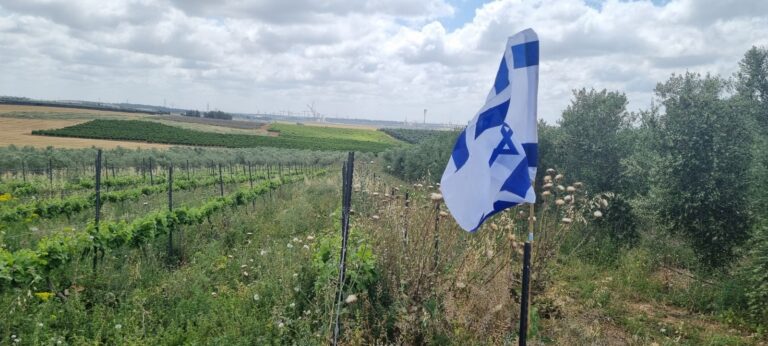
Tamir points out that in Spain, an olive empire on an international level, unprecedented droughts in the past three years have severely hurt production and pushed up prices. (Most of the foreign olive oil in Israel is imported from Spain.)
Add to that the headache of running a small business in Israel, which is infamous for its bureaucracy. “We’re succeeding in spite of the country’s efforts, not because of it,” says Tamir.
He adds that he is not in it for the money. All profits are invested back into the business. “It’s out of love for this labor. If I wanted to earn real money, I would’ve stayed in high-tech. But I wanted to boost the agriculture in the area.”
Sde Moshe used to be home to more than 65 small agriculture businesses. “Now, there are four or five, and most [owners] are my father’s age. If you are a farmer in Israel you are not just not earning, you’re losing money,” Tamir claims.
“If you want to succeed in the agriculture business in this country, you must excel at what you do. You must be special — in presentation and quality.”
To learn more about Ptora products, click here.















